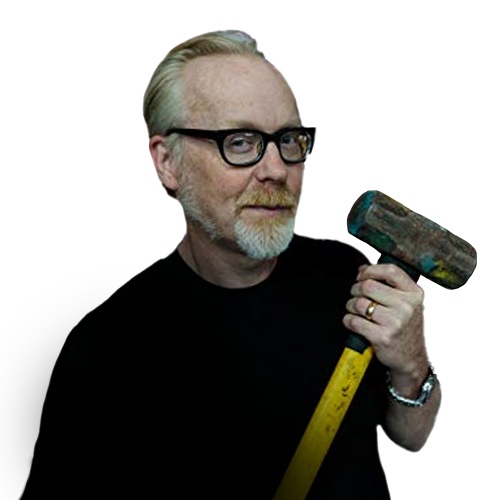* We are in the process of launching a large redesign! In the meantime, please excuse any display issues while we work. Thank you
As Entrepreneurs, Business Owners, Decision Makers, and Consumers, we are often faced with the question, Should I buy the cheap or expensive option? Today, we will take a few minutes to consider this question, because it likely holds more of an influence over your success than you realize!
To start, at Squire, we believe that success is rarely accidental! This is why we take a holistic approach to all aspects of business, to find the big picture of what success is and how we can achieve it.

In one of Terry Pratchett’s fictional novels, “Men at Arms,” the character Sam Vimes, who is somewhere between an old-school British policeman and a Film noir detective, speaks some surprisingly insightful truths that apply to both his world and ours!
It goes something like this: The successful stay successful because they spend less money, and those who struggle often stay in struggle because they find themselves having to make short-term decisions that get them by today, but put them at a disadvantage over the long term.
He goes on to prove his complex point by talking about his simple boots. Every time he wears through his boots, he goes back and buys the same pair of cheap $10 boots that don’t even last a year. There are better quality boots available for $50, but he can’t afford them and needs boots for work the next day. So time and time again, he defaults to the easily accessible, cheaper pair of boots. During the story, he admits that over a 10-year period, those cheaper boots end up costing twice as much as one nice pair of boots, plus he has to deal with wet feet.
In my opinion, this simple analogy perfectly encapsulates how we may think we are being financially savvy by making cheaper purchases, but what is often not seen is how making decisions like this can actually rob you of future success, and make work more difficult along the way!

Note: Throughout this post, I will be using words like Purchase, Buy, Hire, and Investment interchangeably. Please assign these verbs in a way that matches your unique situation.
I know what you are thinking, “This sounds great and all, but I need to keep the ball rolling today, and I can’t afford the $50 boots,” and I totally hear you! Understanding the loss of opportunity along with the physical and mental cost due to a scarcity mindset, is easy enough, but making the change is where it becomes hard! Everyone’s business and situations are different, causing there to be no easy one-size-fits-all solution. BUT, knowledge is half the battle, and there are some tried-and-true methods that can be used over time to help get things back on track. Starting is always the hardest part, but I promise it will get easier over time!
Getting Started:
There are a lot of industries out there that actively look for people who need to make decisions fast and are happy to take their money. You want to be mindful of these traps and avoid them. Examples of this are Payday lenders, high-interest rate credit cards, unfavorable loans, Get-rich-quick schemes, services/vendors who know they don’t have competition, or services/vendors who use sales tactics that try to have you make decisions now, with no time for research or deeper consideration.
Now that you know what to look for, how do you avoid them? The solution is building an emergency fund! This can be a little slow to start, but over time, you should save until you have 3-6 months of your operating expenses in the bank. Then leave that money there and pretend it is your new zero-balance number.
Emergency funds are absolutely critical, and here is why! Just like having insurance on your home or car, this emergency fund will operate as a cushion of self-insurance for your business. This way, if something unexpected pops up, such as your car breaks down, a tool breaks, your employee leaves, a sale falls through, or a pandemic hits, You now have wiggle room to fall back on. The key is, this allows you to buy time to make a good decision, instead of rushing into what is immediately available and affordable.
When we are not rushed into making a purchase and when we have the funds to make good quality purchases, then we are making decisions today that will lead us to success tomorrow.
Are you not able to go positive month over month to even start saving an emergency fund? You are not alone! At this point, you should seek financial advisement. They can help you find specific action items like paying down high-interest debt first, track spending to find saving opportunities, look for financial patterns in your schedule, and plan for ways to address them!

Now that we understand why and how quality purchases are important, and what steps we can take today that allow us time and money to make quality investments tomorrow, we are left to navigate the how and when to make these quality purchases.
It is important to understand that cost doesn’t always equal quality. Things like brand recognition, added middlemen, extra marketing costs, and luxury categories can often have inflated costs. With this in mind, if I am making a purchase of anything that is over $50, I read up on reviews, find real photos, or even better yet, watch YouTube videos of first impressions with hands on the product. Find a few sources and weigh what they are saying against the needs you want fulfilled.
I would start by focusing in on areas where you spend the majority of your time! Are you using good-quality solutions there? Upgrades in these areas tend to have the biggest impact. Also, are there any areas where you are using something that is already broken, or is not the right tool for the job? If so, this can also be an excellent area to start upgrading to quality solutions.
The last thing I want to cover is something that Adam Savage, best known for being one of the hosts of Mythbusters, said on a Livestream. The viewers’ question was “Should I buy a new tool, as soon as I require it for a project, or should I wait until I have multiple projects that need it?”. This simple interaction has stuck with me for over three years now. Adam goes on to provide his insight from when he was at Industrial Light and Magic (ILM), and worked on big-budget movies such as Galaxy Quest, Terminator 3, Star Wars Episode I and II, and The Matrix Reloaded and Revolutions. This was a constant discussion that they had as a team, and after decades of professional expertise, he landed on a few simple core principles:
This is such a big question, and everyone’s situation is a little different, but hopefully you were able to find some helpful tips and feel inspired to tackle life’s issues!